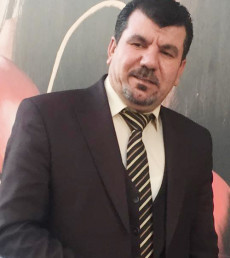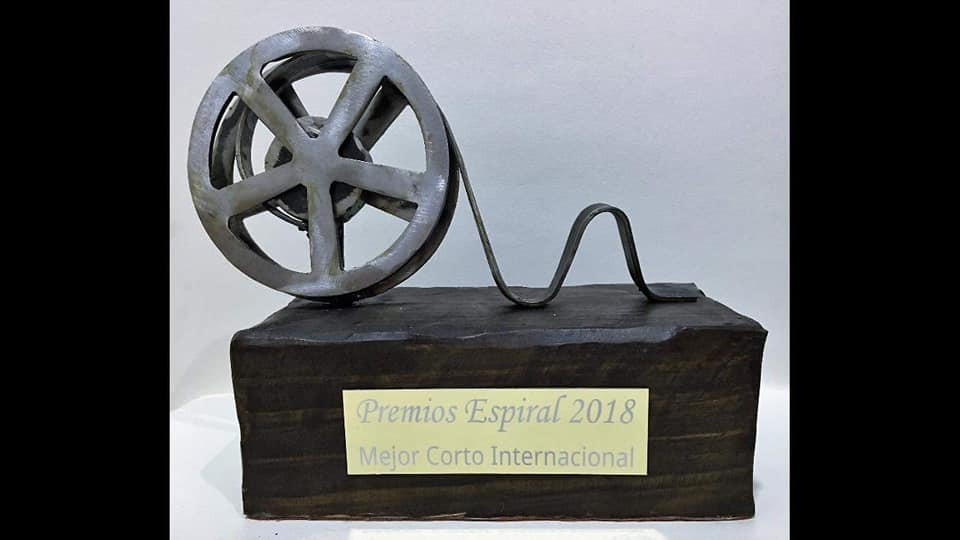
Zhino Khalil

Zhino Khalil
One evening, when Wahid was returning home, his father refused to let him in because he believed that his son’s acting career was shameful and not acceptable among his clan. They often called him “the rebellious boy”.
Wahid’s tough reaction came when he knew that his son took part in a theatrical show in his town Kifri. Although it was considered an ordinary career by many of his fellow townsmen, his own family strongly rejected the idea.
Wahid Majid, known as “Wahid Kifri”, who is now in his 40s, had to face the most difficult choice in his life when he was only 18, defying his father’s will.
“My father’s biggest issue was that he believed I was the only rebellious one among his five sons and he always said he wished if I listened to his advice and stayed as a construction worker”, Wahid told KirkukNow.
Wahid used to earn 5 Iraqi dinars a day from his job; his father kept 4 dinars for himself and gave him only one. “At that time I wasn’t considered a rebellious boy”, he said.
In December 1991, when first went on stage, I was overwhelmed with mixed feelings. When I went back home that evening and knocked at the door I heard my father ordering my sister not to open the door.
“He expelled me from the house so many times”, he added.
Wahid rebels against his family
Still frustrated by his family’s rejection, Wahid had to face another obstacle represented by his suffering to gain acknowledgment of his capabilities in the fields of theatre and directing.
Towards the late 1990s he left Kifri and set out for Sulaimaniya.
“I grew up in a family stuck to the tribal traditions. My parents were illiterate. In the end I understood that it wasn’t my father’s fault who was born in the 1920s unfamiliar with theatre and art; therefore I realized that if I wanted to pursue my career I should leave my hometown Kifri”, said Wahid.
Life in Sulaimaniya was not easy for Wahid, however he decided to pursue his dream at any cost.
There, he worked in a photo studio earning 15 dinars a day. Two thirds of the money went for accommodation expenses and the rest of his wage was supposed to cover his basic necessities. Though his miserable life often frustrated him, his dream offered him the patience and resilience he mostly needed.
In the evenings he spent most of his time writing play and film scripts in the hotel room he was staying in, until one day he decided to take what he had been working on for 8 months to a renowned director in Sulaimaniya.
Without revealing the name of the director, he said, “I was so excited when I met him (the director). I handed him my script wishing that it could be turned into a TV show, but instead he took off his glasses and said: Who do you think yourself writing scripts? It seems that writing scripts has become a laughable career.”
Recalling those extremely shocking moments, Wahid said, “He threw my script away and said: writing scripts is not for you. Why don’t you become a porter or sell tomatoes... I have no time to say more.”
This uncomfortable situation made him burst into tears, but he said, “I later wiped my tears away and decided to go on.”
Wahid Kifri kept following his dream. 20 years later, specifically in October 2018, the Kurdish media covered an extraordinary news about Wahid. He won the best director award at a film festival in Spain.

Wahid made his dreams a reality
Wahid’s path toward his dream was indeed full of thorns and weeds; he still has bigger ones to achieve. “I won’t stop until I reach the top, as I have an unshakeable belief in myself.”
Wahid Kifri, after winning 13 prizes so far, is regarded as one of the greatest Kurdish directors and script writers in both the theatre and film industry.
Among 128 short films from 58 different countries which took part in a Spain film festival, Wahid’s film won the best film award.
The story of the film depicts the living condition of women and children trapped in conflicts.
In December 2018 he won best short film award at (Niar Nazars) international film festival held in Israel.
Currently, Wahid Kifri has two new projects are underway; one of them is a short film to be produced in Kifri along with a TV drama series.
“It is hard to believe that after all I went through, my dreams are coming true”, he said.